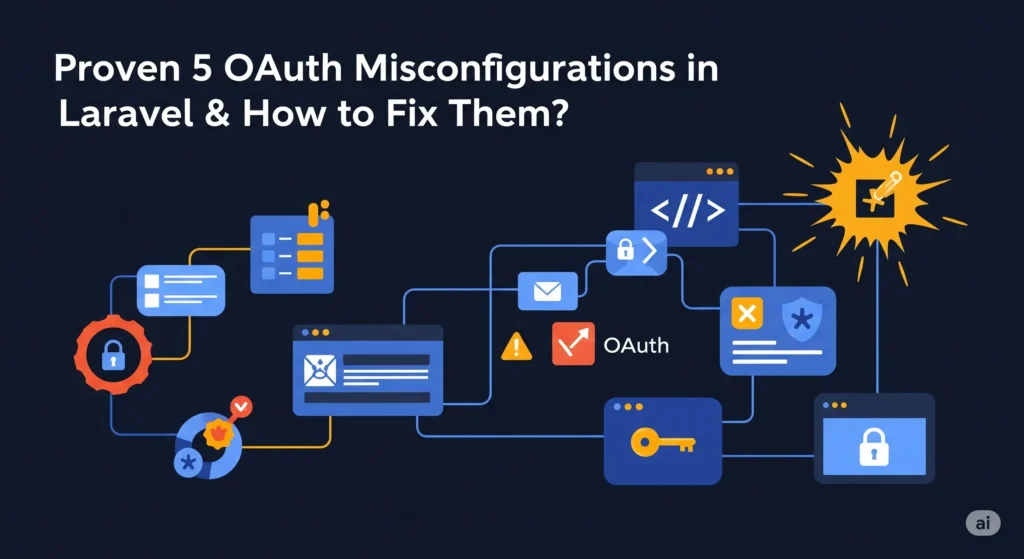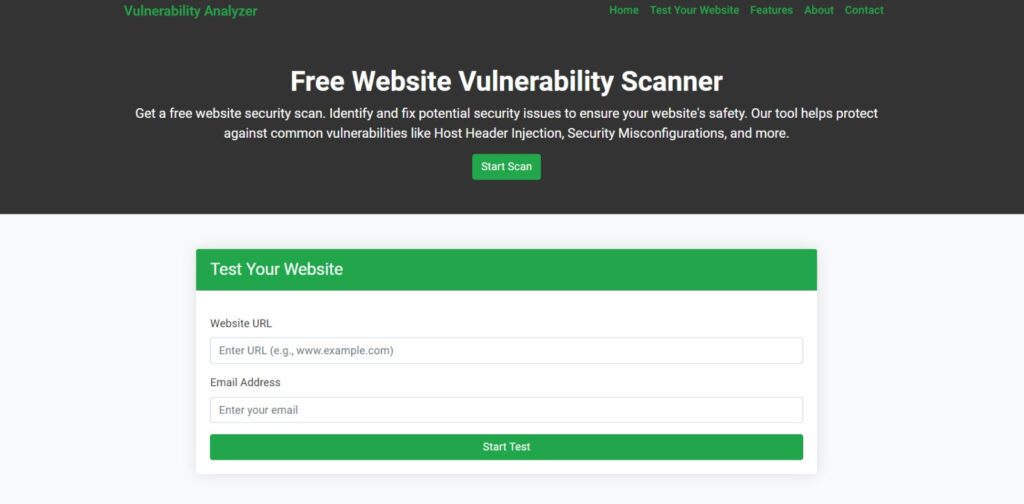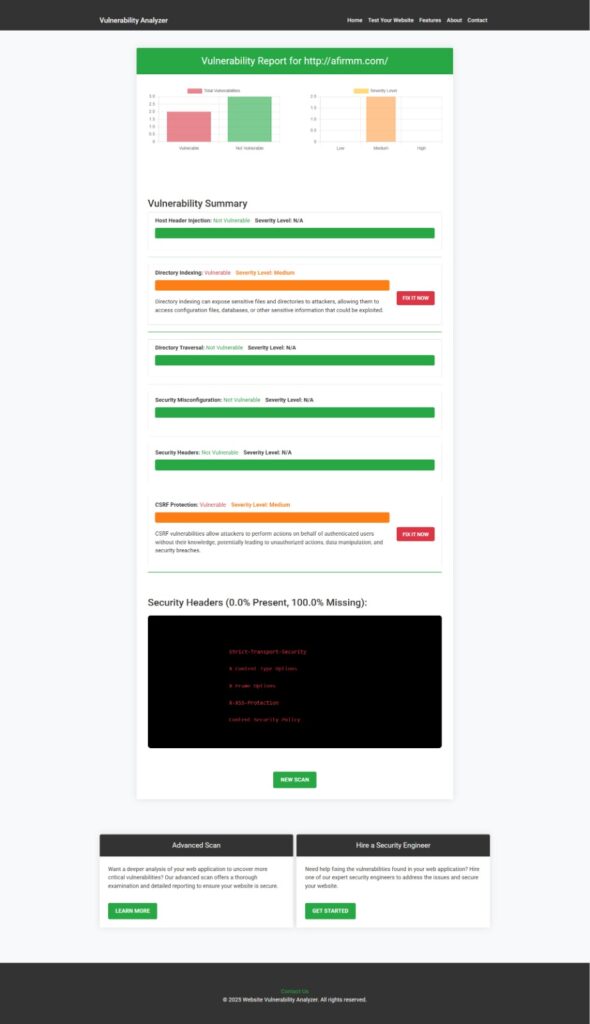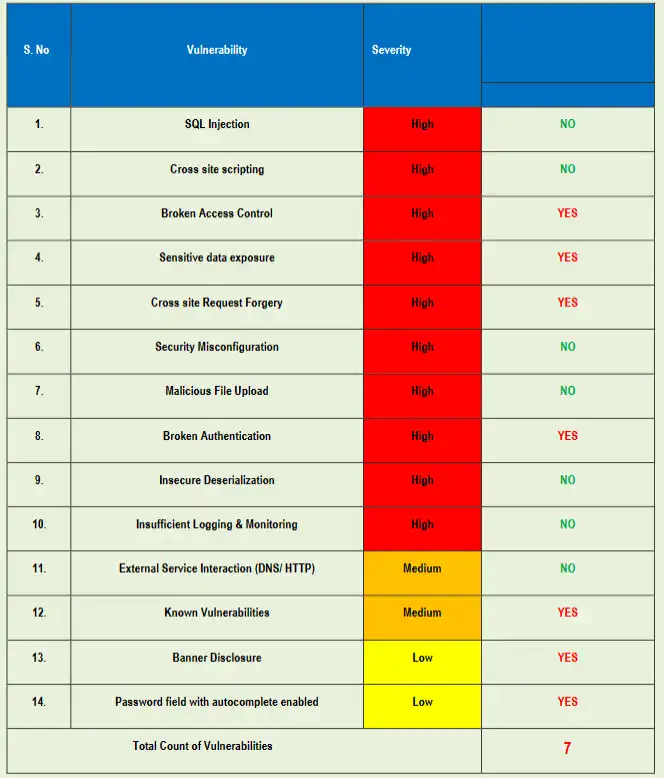Top 7 Ways to Fix OAuth Misconfiguration in Laravel 🔐
What Is OAuth Misconfiguration in Laravel?
OAuth is a critical component in modern web applications for enabling third-party authentication and authorization. Laravel supports OAuth via packages like Laravel Passport or Laravel Socialite. However, OAuth misconfiguration in Laravel is one of the most overlooked yet dangerous vulnerabilities in web apps.

If improperly configured, attackers can bypass authorization checks, hijack sessions, or access protected resources — even when they shouldn’t.
This blog will show you how OAuth misconfiguration in Laravel occurs, how attackers exploit it, and how you can fix it with real-world code examples. Plus, we’ll show how you can test your app using our website vulnerability scanner online free.
🛑 Why OAuth Misconfiguration in Laravel Is Dangerous
Laravel developers often rely on third-party OAuth providers (Google, Facebook, GitHub), assuming they’re secure by default. But a single misconfigured redirect URI, client secret, or scope could let attackers:
- Forge tokens
- Redirect users to malicious URLs
- Perform account takeover
- Access sensitive APIs
✅ Check your Laravel OAuth settings regularly using our free website security scanner tool to avoid being an easy target.
⚠️ Common OAuth Misconfiguration in Laravel
Below are the most common OAuth misconfiguration types developers make in Laravel applications:
1. 🚨 Insecure Redirect URIs
Attackers can exploit open redirect vulnerabilities if the redirect URIs are too permissive.
✅ Fix:
// config/services.php
'google' => [
'redirect' => env('GOOGLE_REDIRECT_URI', 'https://yourapp.com/oauth/callback'),
],✅ Whitelist only known safe URLs — don’t use wildcards (*) or dynamic subdomains.
2. 🔐 Improper Client Secret Storage
Hardcoding OAuth credentials inside Laravel controllers or views exposes secrets to attackers.
❌ Vulnerable:
// DO NOT DO THIS
$clientSecret = 'my-hardcoded-secret';✅ Secure Fix:
Store secrets in .env:
OAUTH_CLIENT_SECRET=your-client-secretThen access in config:
'client_secret' => env('OAUTH_CLIENT_SECRET'),3. 🎯 Over-Permissive Scopes
Scopes define what your app can access. Using broad scopes like * opens excessive access.
✅ Fix:
Only request what you need:
'scopes' => ['email', 'profile'],4. 🧪 Missing State Parameter Validation
The state parameter protects against CSRF attacks. If unused, an attacker could forge login requests.
✅ Fix:
Ensure you’re using Laravel Socialite with state management:
return Socialite::driver('google')->with(['state' => csrf_token()])->redirect();And validate the state upon return.
5. 🛠️ Incorrect Token Validation
Misusing token types (ID vs. Access tokens) can result in access bypass.
❌ Vulnerable:
$user = Http::withToken($token)->get('/userinfo'); // token could be expired or wrong✅ Fix:
Always validate tokens using provider’s token introspection or libraries.
6. 🧱 No Token Expiry Check
Failing to check token expiration allows attackers to reuse expired tokens.
✅ Fix:
if ($token->expires_at->isPast()) {
return redirect('/login')->with('error', 'Session expired');
}7. 📡 No Revocation Mechanism
If users revoke access, your app should respect it.
✅ Fix:
Implement logic to detect revoked tokens and invalidate sessions accordingly.
🔍 Real-Time Testing of OAuth Vulnerabilities in Laravel
You can use our free website vulnerability scanner to check for:
- Open redirect vulnerabilities
- Token mismanagement
- Misconfigured OAuth endpoints
📷 Image: Our Website Vulnerability Scanner Tool

📷 Image: Sample Assessment Report to check Website Vulnerability

👨💻 Sample Laravel OAuth Controller
Here’s a secure version of a Google OAuth controller using Laravel Socialite:
use Laravel\Socialite\Facades\Socialite;
class OAuthController extends Controller
{
public function redirectToGoogle()
{
return Socialite::driver('google')
->scopes(['profile', 'email'])
->with(['state' => csrf_token()])
->redirect();
}
public function handleGoogleCallback()
{
$user = Socialite::driver('google')->stateless()->user();
// Check if token expired
if ($user->tokenExpiresIn < now()) {
return redirect('/login')->with('error', 'Expired session');
}
// Save user and token
// ...
}
}🔗 Related Blogs You Must Read
- ✅ Prevent JWT Attacks in Laravel
- ✅ Prevent Command Injection in React.js
- ✅ Business Logic Vulnerabilities in Laravel
- ✅ LDAP Injection in Laravel – 5 Easy Fixes
- ✅ Why Regular Penetration Testing is Crucial
🚀 Try Our Professional Penetration Testing Services
Want deeper analysis of your Laravel app’s OAuth flow?
🔒 Web App Penetration Testing Services
Our expert pentesters simulate real-world attacks on your application, including OAuth misconfiguration detection and fixing.
💼 Offer Cybersecurity Services to Your Clients
Partner with us and deliver expert VAPT to your own clients under your brand.
✅ Final Thoughts
OAuth Misconfiguration in Laravel can lead to catastrophic breaches. Whether it’s a loose redirect URI or an exposed client secret, each mistake is a potential exploit. Laravel gives you the tools to implement OAuth securely — it’s up to you to configure them correctly.
🔍 Use our free vulnerability scanner to audit your OAuth setup, or contact us for a manual audit from our experts.


Pingback: Prevent Buffer Overflow in React.js with 7 Proven Ways